Overthinking is when you spend too much time and energy thinking about something, usually a problem or a decision, in a way that becomes unproductive and stressful. It’s like when you keep reviewing the same thoughts in your head, imagining different scenarios or worrying about what might happen.
It’s okay to think about things, but when you do it too much and it start making you feel anxious or stuck, it’s called overthinking. It’s like your brain is running in circles instead of finding a clear and helpful solution. If you also have the problem of overthinking, then today is the last day of this problem.
Introduction
Today, we will talk about the book “Stop Overthinking” by Nick Trenton. In this book summary, you’ll learn effective ways to reduce anxiety and gain control over your mind. A wandering mind is an unhappy mind. If you tend to analyze past events and worry about the future to such an extent that you cannot focus on a routine task, then you are overthinking.
Many of us have become habitual overthinkers because it gives us the illusion that we are doing something about the solution to the problem we are overthinking.
With this type of thinking, it is almost impossible to get rid of overthinking, even if you make a proper plan, but if your anxiety increases, the mind will keep overthinking. You have to work on its roots to reduce your anxiety fast and control your mind, which you will learn in this summary.
To make the book easy to understand, we have explained its essential lessons in 7 chapters. So, let’s start.
Chapter 1: Ways to Stop Overthinking
Method 1: 5-4-3-2-1
The 5-4-3-2-1 method will distract your mind long enough for you to regain a sense of control. Doctors use this method to help patients overcome anxiety disorders.
The 5-4-3-2-1 process works like this: Count slowly from five to one while under stress. As you count down, use each number as a sign to engage one of your five senses. At five, look at five things in your surroundings. On four, listen to four different sounds. On three, feel three feelings. On two, find two smells. Identify any one taste on one.
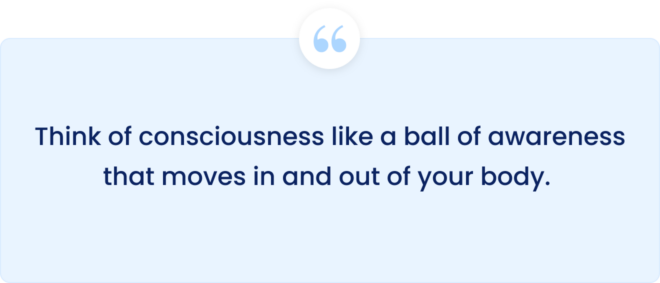
Think of consciousness like a ball of awareness that moves in and out of your body. When you’re lost in thought, your ball of awareness rolls around inside your mind, bouncing around like a pinball and thinking about all the scenarios you’re thinking about. What if this happens? What if this doesn’t happen? What if I had done things differently? Etcetera.
If you take a second to notice a fine detail in something around you, such as the lines and colors of a wooden desk near you, your ball of awareness will leave your mind and hover over the desk. By following this 5-4-3-2-1 method, you keep the ball of attention out of your mind long enough to reduce your anxiety and regain control.
Method 2: counter-belief experiment
Behind every ‘overstatement case’ is an undermining belief. For example, if your mind overthinks before a presentation, you must believe you must prepare more.
You can stop overthinking by taking these steps to challenge the worry-causing belief:
- Clear the belief by asking yourself, what should I believe about myself, others, or the future?
- Reverse that weak belief and create a counter-belief: If you believe “I am not prepared for this presentation”, then its counter-belief is, I am well prepared for this presentation.
- Analyze the counter-belief and run a counter-belief experiment: Live as if the counter-belief is valid for at least one minute. Live the next sixty seconds with the confidence that you are well-prepared for your presentation.
- Look for evidence to support your new belief: Consider your past performance to keep it.
When you find evidence to support a counter-belief, you begin to doubt your core belief, which reduces your anxiety and calms your overthinking mind.
Method 3: Worry Suspension
The authors explain that when they’re overwhelmed with anxiety and find it difficult to focus on work or enjoy time with someone close, they pick up their phone, press the side button, and say, “Hey, Google Assistant.” Fix my appointment to worry at 8 pm. Usually, by the time it’s 8 p.m., they forget what they were worrying about.
Most of the time, our worries want to be accepted. By setting aside time to worry, you acknowledge your worry and limit it to a small portion so that it doesn’t spill over into the rest of the day. Avoiding fear is a direct and effective way to stop the anxiety cycle. We can rarely eliminate anxiety, but we can limit its onset and duration with awareness.
Chapter 2. More thinking does not mean overthinking
Imagine a young person, James; James is kind, understanding, and self-aware. James is always worried about something or the other, and today, he is concerned about a small health-related thing. He sees a knot on his shoulder. He researches online and thinks more about treatments by looking at them. Then he pauses, looks at himself, and feels: “I’m probably overthinking things.
So he stops feeling tense about his health. And starts paying attention to his thoughts about health. He thinks I may need some treatment. But what kind? His thoughts start increasing, and he soon debates his options with the internal consultant, arguing, analyzing, defending, questioning, etc.
With just one problem, he starts thinking about many unnecessary memories, guesses, fears, and experiences. He wonders, won’t I get a panic attack due to anxiety? The moment this thought comes to his mind, his mind is filled with millions of examples of times when people told him about some drawbacks related to it.
Then, he puts a lens on all his shortcomings and begins to turn each one of them over in his mind, wondering why he is the way he is. Next, he feels frustrated that he is not making the right decisions to fix his health and immediately falls into a storm of negative self-talk to himself, feeling depressed again. That’s why this always happens to me. You must be able to see where this decision or mental struggle started. It started with ‘there was a small lump on his shoulder’.
Most people live in such a stressful world. Overthinking happens when your thoughts get out of control. The result of endlessly analyzing life and yourself is usually unwanted, unstoppable, and self-defeating. Usually, our mind helps us solve problems and understand things more clearly – but overthinking does the opposite.
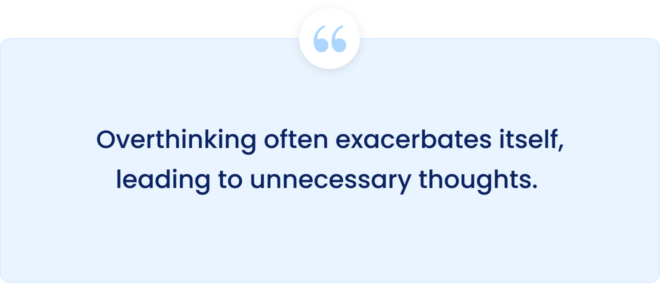
Whether you call it passion rather than worry, overthinking doesn’t help us in any way. Overthinking often exacerbates itself, leading to unnecessary thoughts.
Here’s how you can spot whether you’re overthinking:
- You often keep thinking about your thoughts every moment. Work hard to control your thoughts.
- While thinking about your thoughts, you often dislike some ideas.
- Thinking for you often feels like a competitive struggle. You constantly question your thoughts, doubt them, analyze them, or draw conclusions.
- In difficulties, you often consider yourself and your thoughts as the source of the problem.
- You do not make decisions and often doubt the options you choose.
- You consider yourself to be entangled in negative thoughts again and again.
- Sometimes, you feel like you can’t help returning to a thought, even if it’s something that nothing can be done about in real life.
You will notice that some of these are good qualities. Thinking power develops with more awareness. By questioning your running thinking, you can make better decisions. Thinking is a fantastic gift.
The ability to pause, analyze, and ask our thinking is arguably humanity’s most excellent quality and the reason for many of our successes. It is not harmful to think. Our mind is a unique tool given by god for this, but when we feel excessive, we weaken its power.
Chapter 3: Causes of Stress
There are usually these reasons for stress:
- People often worry about money, work, family, relationships, aging, or stressful life incidents.
- They see someone outside having an excellent materialistic thing, anxious to have it.
- Work pressure, demands of children, and lack of emotional spark in relationships.
- They listen to negative news.
- There are two types of politics. Positive politics and negative. Positive, in which there are talks about the country’s progress, and negative, in which there are talks of harming others. Talking about negative policies increases stress.
- Lack of sleep and overeating junk food.
- Remember the painful memories that happened to you in the past.
- Your low bank balance.
Apart from this, the environment in which you spend most of the time also significantly impacts the mind, like your home and office environment. That’s why you must have heard that as advice to relieve stress, keep your room clean.
An unorganized climate, whether at home or work, is an essential cause for concern as it subconsciously affects your mind. Things like the quality of the light, the smells and sounds you come in contact with, the color of the walls, and the people living with you in these places influence the level of stress and happiness.
Chapter 4: Consequences of Overthinking
Do you remember James? We only glimpsed his mind briefly, but imagine he does this 24/7. Although we know it is not beneficial, most people do not consider worry and overthinking harmful. They think that worry is also just a thought.
However, it is different. Anxiety is a physical, mental, psychological, social, and spiritual indecent. There is no such aspect of life that is not affected by overthinking. When you feel threatened, your HPA axis hypothalamus, pituitary, and adrenal become active. Your mind triggers neurotransmitters and hormones so that the body has an effect and you are ready to fight or avoid danger.
The physical effect harms the body in both the long term and the short time, such as severe headache, nausea, muscle tension, fatigue, dry mouth, dizziness, increased breathing rate, muscle pain, trembling, sweating, digestive problems, weakening of the immune system and memory power.
Our bodies are designed to tolerate high stress only for short periods, but prolonged stress can cause health problems such as heart disease, sleep deprivation, and hormonal dysregulation.
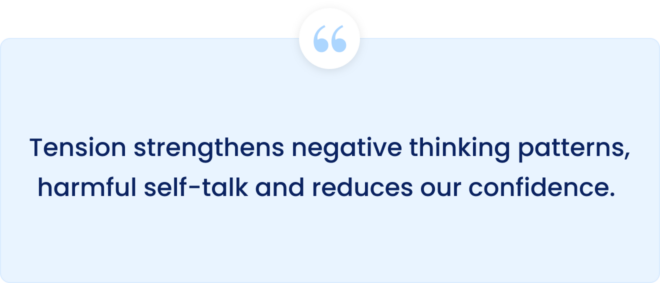
On the mental and psychological level, fatigue, nervousness, irritability, difficulty focusing, lack of motivation, changes in sexual desire and appetite, nightmares, depression, feeling out of control, and disinterest in life begin to occur. Additionally, tension strengthens negative thinking patterns and harmful self-talk and reduces our confidence.
At the social and environmental level, problems such as lack of interest in maintaining close relationships, poor performance at work, irritability with others, not interacting with people in public, and involvement in addictive or harmful activities begin.
A person constantly under stress starts losing meaning and happiness in life, stops making plans for it, cannot do charitable work for others, and, most importantly, loses the motivation to live his life.
If you constantly overthink, your body will worry by increasing cortisol and other stress hormones. It will make you think more and more, increasing stress and changing how you feel about yourself and your life.
Then you can choose the wrong option for yourself, like staying up late, eating bad food, keeping quiet, etc. When we overthink, we make normal anxiety more negative. Due to this, they get trapped in the web of worry and strengthen a bad habit, which hurts every aspect of life: mind, body, and soul.
We all have different ways of thinking and analyzing it. But we have the most control over how we interpret our experiences and move forward. With practice, you, too, can train your mind to work in your favor, to see things differently, and to resist constant worrying.
Chapter 5: The 4 A’s of Stress Management
These methods are like a life safety boat in the storm of overthinking. These methods are avoid, alter, accept, and adapt. These four methods help deal with every stress of life.
Avoid: The first thing is to avoid it. It sounds simple, but there are a lot of problems in life that you can’t just walk away from. We cannot control everything in life, but we can manage our conditions so that we do not have to live in stressful environments or with stressful people.
Think about what is stressing you out in the environment around you and how you can control or eliminate it. For this, you can do something like this. Suppose there is a lot of crowd at the retail outlet on Saturday, then you can reschedule your shopping time to a less crowded time so you can do your weekly shopping at the quietest time. That way, if you avoid it, there will be no need to deal with the stress of a busy supermarket.
In the same way, you can also avoid stressful people. Suppose your stress increases when your family stays with you during the holidays. So please find a way to get them to stay in a nearby room, or avoid planning any activity where you’re alone for hours and have nothing else to do but stress each other out.
When you avoid stress, you are not escaping responsibilities or denying real problems. You are simply learning to say “no” to unnecessary and harmful tension. You can always say no to situations and people who demand too much from your resources. Those resources can be mental energy, attention, money, and time. If something in life takes up all your time, don’t stop saying “No” to it.
Alter: Look at your work schedule and eliminate two or three things that could be more important. For this, delegate that work to someone else or let someone else take the responsibility. So, the next time you’re faced with a stressful situation, ask yourself, “Can I avoid this whole thing? If you can, do it. If you can’t, let the situation go.” Find ways to change.
You always have the option of asking others to change their behavior. For Example, If the barber is not cutting your hair according to you, then ask him to cut it properly. Communicate your needs and feelings directly instead of silently enduring the trouble. If you haven’t told your friend explicitly that their stupid jokes hurt you, instead of sitting quietly and listening to them, tell them how you feel and ask them to stop.
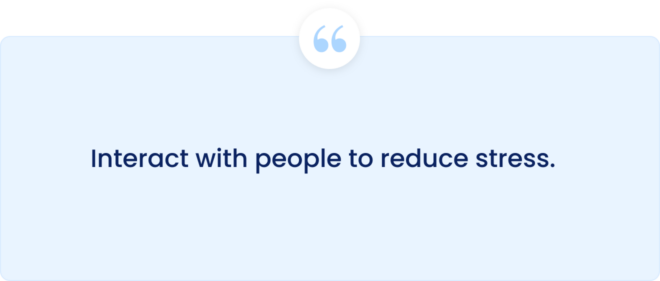
We cannot avoid every stress in life, but we often contribute to how these incidents happen. Interact with people to reduce stress. Apart from this, if you cannot avoid that situation, adopt a way to prevent strain while passing that time. For example, if you can go to the store only on Saturdays and don’t have time, play an audiobook on your phone and listen to it while shopping. If you can’t avoid going to a boring party, go, but be clear at the beginning; unfortunately, I must go in an hour.
If there’s stress you can’t avoid, ask yourself what you can do to change it. If your answer is mostly NO, you must take a step ahead and accept it.
Accept: First, if you dislike something, be clear about it. Acceptance doesn’t mean pretending you don’t feel how you feel; Rather, show what you think. For example, if your lover has recently broken up with you through massage, and you cannot do much about his decision, you can work on accepting the situation by calling a friend to share your feelings.
If the situation is such that injustice has been done to you, then forgive for acceptance. Remember that you do forgiving for yourself, not the other person. When you forgive, you free yourself from the stress and wasted energy of holding grudges and blaming the other person.
Sometimes, we cannot change external situations by ourselves, but at that time, you can see how to talk about them from the inside and use a positive tone. For example, instead of saying, I failed in my exams and wasted my family’s money, I worked very hard but still didn’t pass; I am such a fool, you can say, I made a mistake. And I’m not happy about it. But this one incident does not define me. I will move ahead after learning from these mistakes and perform better next time.
Acceptance does not mean we agree with what happened or that we like it and should not try to change it. It means that we calmly accept what we cannot turn into reality and focus on what we can.
Adapt: In the long term, you can manage stress well if you can customize it. Customization means making necessary changes in your worldview, goals, your beliefs, and expectations. Don’t be like someone with a perfectionist mindset and is constantly stressed about perfection because he often fails to meet his set standards.
So, the best way to eliminate stress is not to find a way to become Superman but to lower your expectations so that your new expectations are more suitable and realistic.
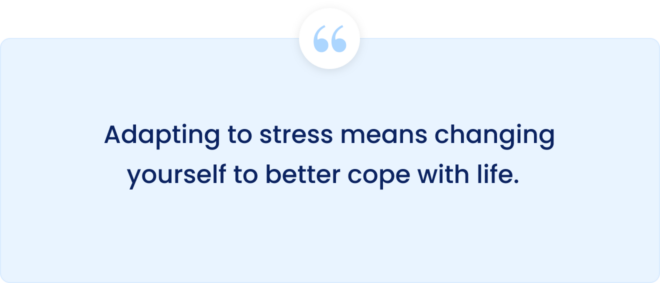
Adapting to stress means changing yourself to better cope with life. To do this, refuse to engage in hopeless thoughts and practice being intentionally more optimistic. By changing your perspective, you often make your mindset flexible, due to which opportunities are visible even in difficulties. Because when we become stress-friendly, we find ways to strengthen ourselves.
For this, make a habit of making a “thank you list” daily of all the fantastic things you have received in real life. Apart from this, affirm that you are strong and can handle the opposite situation. If you have this kind of powerful approach, thoughts, and motivation, you can face problems with confidence, and living with this mindset leads to a better personality.
So, these are the four principles of stress management. When you feel yourself getting stressed, stop and look at it. No matter how stressful the situation, there is always a way for you to deal with it actively. You are not helpless in the face of stress; you have the tools. A little awareness is needed to use these tools.
For example, a colleague at the workplace gives you stress every day. So instead of being silent, stop and ask if you can avoid Colleagues. To avoid meeting them in the cafeteria, have lunch at a different time or sit physically away. But you must confront them in weekly meetings, where they often disturb you or steal your ideas, then think of ways to change the situation, like how you can get out of the meeting quickly.
You speak to your Colleague personally and share your concerns that I feel uncomfortable in the conference with this behavior of yours; when you stop me, it seems that I have been rejected. Next time you share your ideas in the meeting, please stay within a little limit with me.
If none of these is possible in reality, then accept the situation. Please talk about your frustration with a close friend or convince yourself that such is the nature of that Colleague; he disturbs everyone. So don’t take it personally.
Ultimately, you can overcome it by working on becoming a more confident and outspoken person. When you realize you have as much right to speak in the meeting as anyone else, you confidently say, I am talking now; please say your words later and continue.
Chapter 6: Use Stress Diaries and Journals
One solid way to bring more awareness to your daily experiences is to write them down. With overthinking, sometimes it can feel like you have a million things going on in your mind, and it can be challenging to determine which is causing your anxiety. A stress diary can help you clarify your triggers and responses to them. From there, you can actively take steps to manage your stress levels.
A stress diary is a written record of your stress level and related information that you can later analyze and take steps to manage stress. We all need some stress in life, and some focus needs to be eliminated, so this diary will help you to identify which pressure is good for you and which is not.
Record each entry with the time and date, and rate yourself based on your feelings. For example, give a rating of 1 for no stress and 10 for much anxiety. For stress measurement, you can note your physical symptoms. Also, note how effective that method is for measuring pressure.
Then, focus on any stressful events that have happened recently and try to see what is causing your current situation. Finally, note how you responded to the incident and the result. For Example:
February 4, 9:15 am
You received a stressful message regarding Dad’s shoulder surgery. Seeing this, I started feeling a little tired. I started feeling strange in my stomach and having trouble concentrating at work. You think you feel this way because you are worried that something terrible might happen to him. That’s why you are refraining from replying to the message, but you know this may further increase the problem.
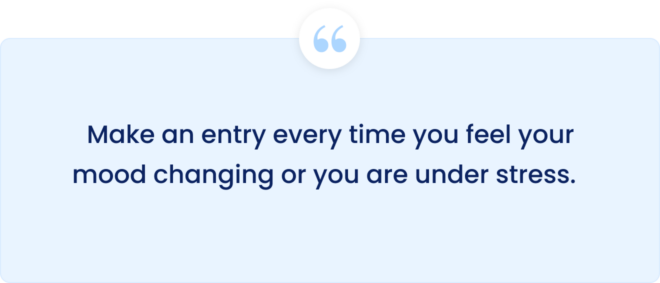
Make an entry every time you feel your mood changing or you are under stress. Take that diary after a few days or weeks, then analyze it to find the stress pattern. What are the most common causes of stress, i.e., what usually happens before a sudden mood change in focus?
And how did these incidents influence your productivity in the past? How did you respond emotionally and practically to these incidents? And are you aware? Can you identify stress levels that are comfortable and beneficial to your productivity?
When you analyze your stress diary this way, you work with accurate data to help you make practical changes. You will be surprised about some of the changes and will be able to make changes immediately. You can leave a stress diary alone. After using it for a few weeks, the process becomes automatic, and you start developing more awareness of the reason and how to fix it.
Once you understand the natural causes of stress, you can use the 4 As a technique to fix it or reorganize your lifestyle or schedule to reduce stress. If you see that all your pressure is coming from one person, then you can put some limitations on the relationship with him.
If you find that getting angry makes things difficult to handle, start working on reducing your anger. If your job continues to cause worry, you can try to fix it by taking a break or changing jobs.
Whatever stress you have, definitely write it. Because writing things down automatically relieves stress, it helps you collect your thoughts, solve problems, and listen to your inner voice. In this way, this diary acts like a therapist.
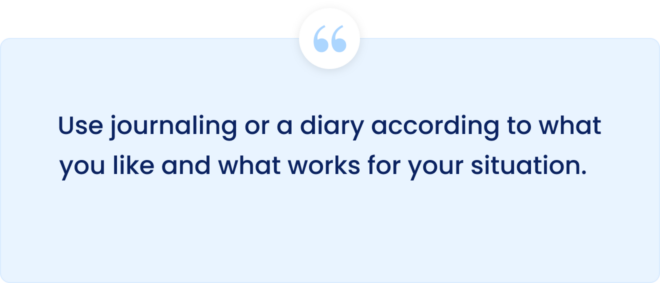
Use journaling or a diary according to what you like and what works for your situation. If you are struggling with a bad mood, write a gratitude journal. Just write down five things in it every day that you are grateful for; it could be something as small as the great taste of your morning coffee, the joy of seeing a friend walking across the street today, or the feeling of wearing new jeans. This approach will shift your focus to your resources and possibilities and reshape your experiences.
Suppose you are going through a painful or challenging life event; just journal to feel better emotionally. Write all your feelings on the diary paper and how you want to think in its place. After doing this, you will naturally feel self-awareness and will be able to see some signs to move forward.
If you have a lot of stress going on in your life, try bullet journaling. In this, you make short notes to keep track of daily goals, priorities, and good memories. Keeping things short will help you stay organized and add joy to life. Some people like to accompany bullet journaling with art. Use such colors and images to express themselves and increase motivation.
However, it isn’t for everyone. If you don’t feel good this way, leave it. Try to end each journal with something positive and realistic. For example, write positive affirmations at the end, write positive action, or write the path of possibilities and solutions to move forward.
If you find yourself returning to sad memories of the past, design your history with awareness, writing down good memories and lessons from the past. Also, note down those things you were unhappy about not being able to change in the past but can change now.
Then, break those incidents down into smaller chunks and look for a theme, a pattern, that ties them all together. See how the present moment connects to the past, then ask yourself what you can do to take responsibility for it. For example, if you are complaining about mistakes made in the past, you can create a story like this:
You weren’t an idiot who did something wrong, but you were young, learning, and constantly improving your development process. You can see that the mistake made then has made you more mature today.
Chapter 7: Manage Your Time and Inputs
The most significant source of our worries is poor time management. You prioritize the things that make you sad and avoid giving enough time to the things that make you happy. You rarely find time for enjoyment and rest, so actively do so to reduce your stress level.
For this, you can make a daily routine and do your tasks according to priority. Apart from this, you will move forward happily without stress by dividing your big goals into small parts and completing them individually.
Adopt Allen’s input processing method. First, pay attention to how you respond to even the most minor exciting things like calls and emails. Then, you have to plan for a better way of giving a response based on your present response.
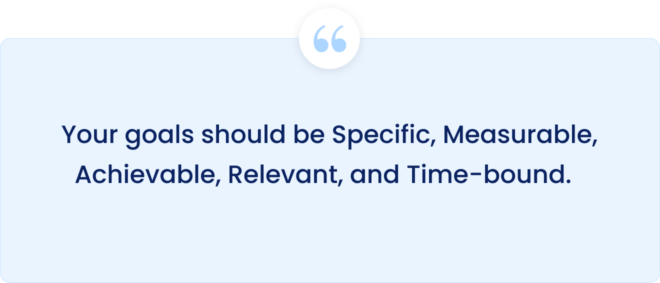
Another helpful method is to use Smart Goals. Your goals should be Specific, Measurable, Achievable, Relevant, and Time-bound. Note your plans with specific details so you know exactly what to do. Then, make a standard or scale for this measure by which you will see that you have achieved this goal.
Decide that the goal should be achievable; it should not be something that can only be seen in a dream and has no existence in reality. See how this goal relates to your life’s values and what purpose will be fulfilled by achieving it. Finally, fix a time limit to complete this goal so you can complete it in the given time.
Conclusion
Friends, this is the summary of the book Stop Overthinking. Whatever we have learned so far from the book, let us repeat it once so that it is easy to remember.
- The main reason for overthinking is to think about something excessively.
- Follow these methods to prevent the stress caused by overthinking:
- 5-4-3-2-1 plan: Count slowly from five to one while under pressure. As you count down, use each number as a sign to engage one of your five senses. At five, look at five things in your surroundings. On four, listen to four different sounds. On three, feel three feelings. On two, find two smells. Identify any one taste on one.
- Set aside time to worry. Because most of the time, our worries want to be accepted. By setting aside enough time to worry, you get your worry and limit it to a smaller portion of the time. And often, the concern is remembered after the time that time comes.
- And the last way is to focus on positive things in and around your life.
Stop Overthinking Book Review
“Stop Overthinking” is a practical guide by Nick Trenton that offers actionable strategies to break free from the cycle of overthinking.
The book provides insights into understanding the root causes of overthinking and presents techniques to manage and redirect excessive thoughts. It combines cognitive behavioral techniques with mindfulness practices to help readers regain control over their minds.
With relatable examples and step-by-step instructions, it empowers individuals to challenge negative thought patterns, reduce anxiety, and improve decision-making.
Overall, “Stop Overthinking” is a valuable resource for those seeking to cultivate a more balanced and peaceful mental state in their daily lives.
Contents

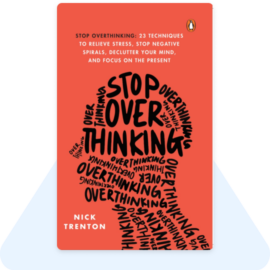
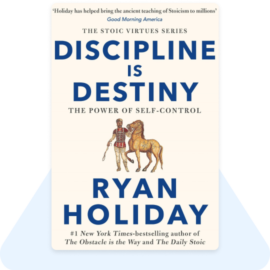
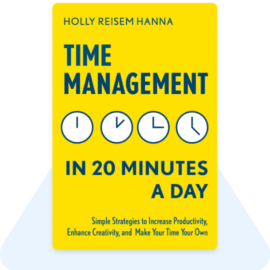
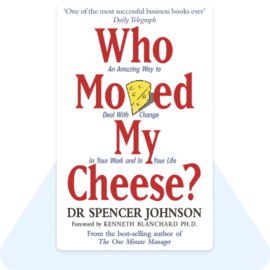



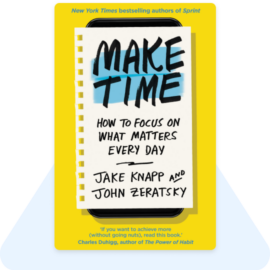
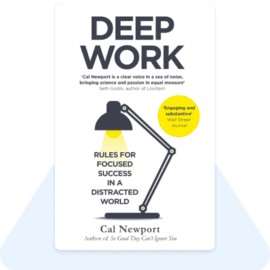

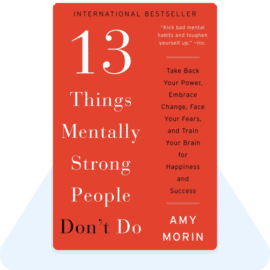


THANKS, TEAM RBC, I MADE SELF-NOTES BASED ON THIS BOOK. HOPE IT WILL IMPACT SIGNIFICANTLY PRODUCTIVITY AND STRESS MANAGEMENT.